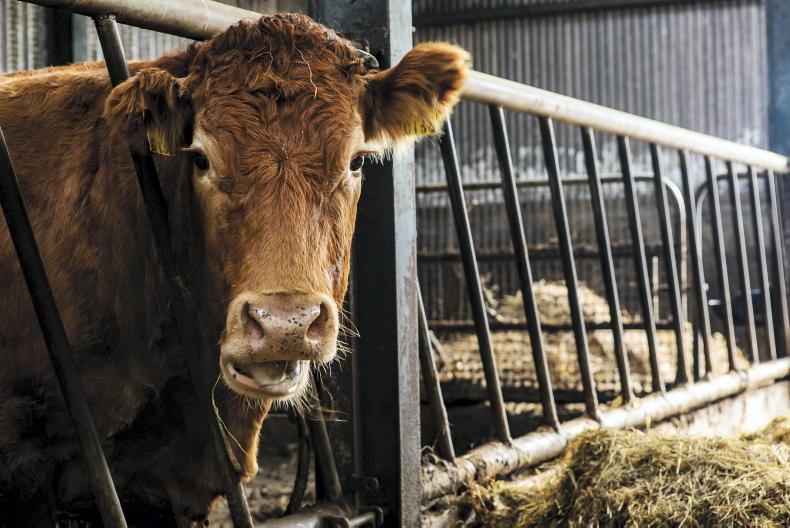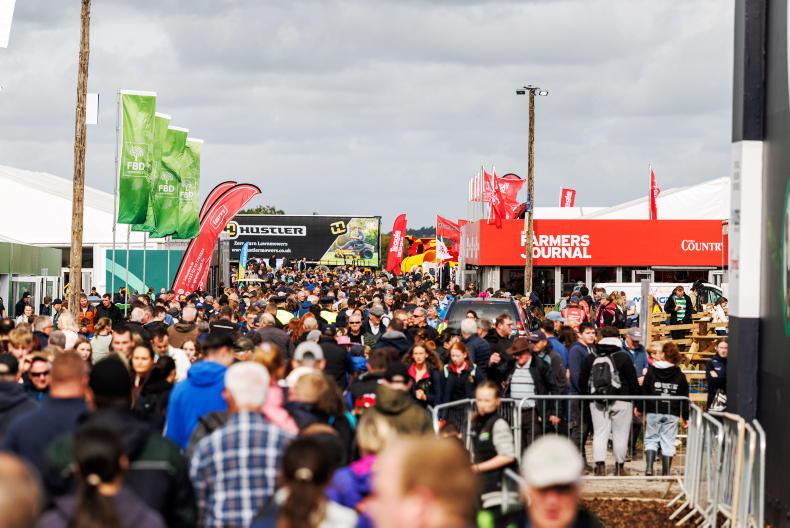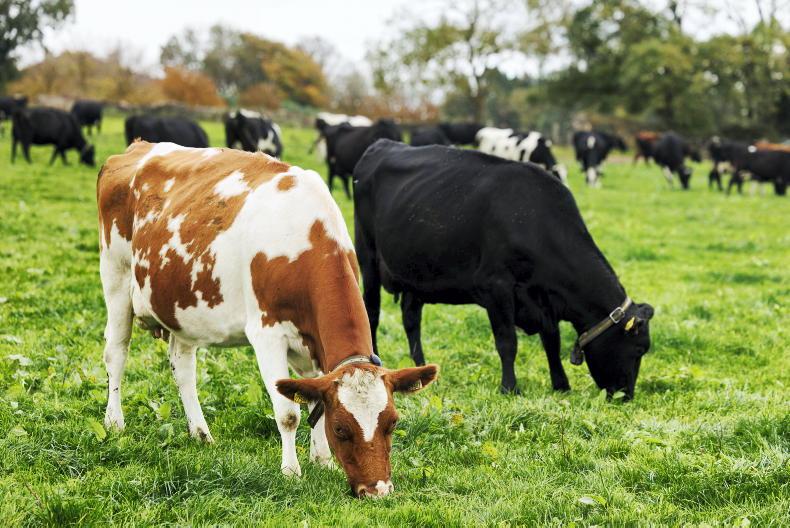A new report by economists at Teagasc estimates that a failure between the EU and UK to agree a trade deal, the average family farm income in 2021 could decrease by 18%.
This would amount to an income reduction in excess of €690m for the agriculture sector in 2021, the Outlook 2021 Economic Prospects for Agriculture report projects.
The no-deal Brexit scenario assumes that no additional support is made available to the agriculture sector to address the impact on incomes of the reduction in output prices that would occur.
Looking ahead
The Teagasc report predicts that once the UK’s Brexit transition period ends on 31 December 2020, Irish agriculture will face an enormous challenge.
If tariffs are imposed on trade, Irish exports to the UK would decline and output prices are projected to fall by almost 20%, 8%, and 7% respectively for cattle, pigs and milk.
By contrast, Irish lamb prices are projected to rise by 7%, as the exclusion of UK lamb exports from the EU lamb market would lead to an increase in EU and Irish lamb prices.
Aside from tariffs, which will likwly be avoided under any trade deal agreed, there will be additional trade costs, such as customs and regulatory checks, which will be inevitable as the UK leaves the Single Market.
The largest reductions in 2021 could occur on Irish beef farms, where the average income could drop by as much as 40%. The average Irish dairy farm income could drop by up to 13%.
Even though Irish lamb prices are expected to increase, the average sheep farm income could still fall by up to 4%, as many sheep farms also have a cattle enterprise which would experience significant losses.
COVID-19
The economists who compiled the report say further disruption to economic activity due to COVID-19 cannot be ruled out, as the vaccination process represents a major logistical task that will extend well into the second half of 2021.
Looking back at 2020 the researchers detail that the impact of COVID-19 on the agri food sector was minimal.
The average family farm income for 2020 increased by 6%. A key driver of this increase has been a reduction in animal feed, fertiliser and fuel prices, along with additional subsidy supports for cattle producers.
However, the associated lockdown measures did lead to restrictions on marts, a short-term contraction in beef processing and lower beef prices.
The full report is available to view here.
Read more
Greencore boss confident of no Brexit tariffs and UK economic recovery
Brexit to hit bread prices - Teagasc
New Rosslare-Dunkirk ferry route not suitable for livestock
A new report by economists at Teagasc estimates that a failure between the EU and UK to agree a trade deal, the average family farm income in 2021 could decrease by 18%.
This would amount to an income reduction in excess of €690m for the agriculture sector in 2021, the Outlook 2021 Economic Prospects for Agriculture report projects.
The no-deal Brexit scenario assumes that no additional support is made available to the agriculture sector to address the impact on incomes of the reduction in output prices that would occur.
Looking ahead
The Teagasc report predicts that once the UK’s Brexit transition period ends on 31 December 2020, Irish agriculture will face an enormous challenge.
If tariffs are imposed on trade, Irish exports to the UK would decline and output prices are projected to fall by almost 20%, 8%, and 7% respectively for cattle, pigs and milk.
By contrast, Irish lamb prices are projected to rise by 7%, as the exclusion of UK lamb exports from the EU lamb market would lead to an increase in EU and Irish lamb prices.
Aside from tariffs, which will likwly be avoided under any trade deal agreed, there will be additional trade costs, such as customs and regulatory checks, which will be inevitable as the UK leaves the Single Market.
The largest reductions in 2021 could occur on Irish beef farms, where the average income could drop by as much as 40%. The average Irish dairy farm income could drop by up to 13%.
Even though Irish lamb prices are expected to increase, the average sheep farm income could still fall by up to 4%, as many sheep farms also have a cattle enterprise which would experience significant losses.
COVID-19
The economists who compiled the report say further disruption to economic activity due to COVID-19 cannot be ruled out, as the vaccination process represents a major logistical task that will extend well into the second half of 2021.
Looking back at 2020 the researchers detail that the impact of COVID-19 on the agri food sector was minimal.
The average family farm income for 2020 increased by 6%. A key driver of this increase has been a reduction in animal feed, fertiliser and fuel prices, along with additional subsidy supports for cattle producers.
However, the associated lockdown measures did lead to restrictions on marts, a short-term contraction in beef processing and lower beef prices.
The full report is available to view here.
Read more
Greencore boss confident of no Brexit tariffs and UK economic recovery
Brexit to hit bread prices - Teagasc
New Rosslare-Dunkirk ferry route not suitable for livestock









SHARING OPTIONS